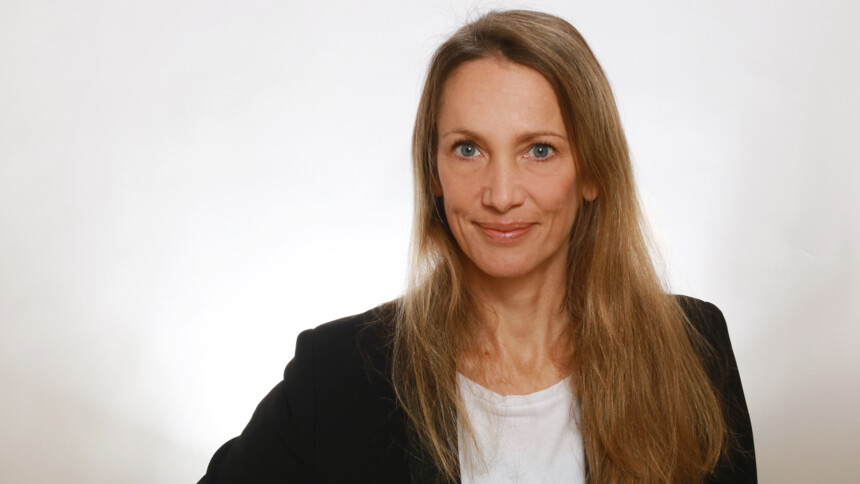A Pioneering Region for Sustainable Energy from Green Hydrogen
The consequences of climate change are becoming increasingly evident – making the transition to a sustainable economy both a challenge and an opportunity. The foundation of this transformation is a clean, secure, and affordable energy supply. Not only for this reason is green hydrogen, produced from renewable energies, one of the industry's beacons of hope. The hydrogen economy is experiencing a rapid upswing, offering enormous potential while at the same time posing challenges.
In collaboration with strong industry, science, and politics partners, Hamburg is driving the development of a competitive green hydrogen economy forward, including comprehensive decarbonization of the port, industry, logistics, and aviation.
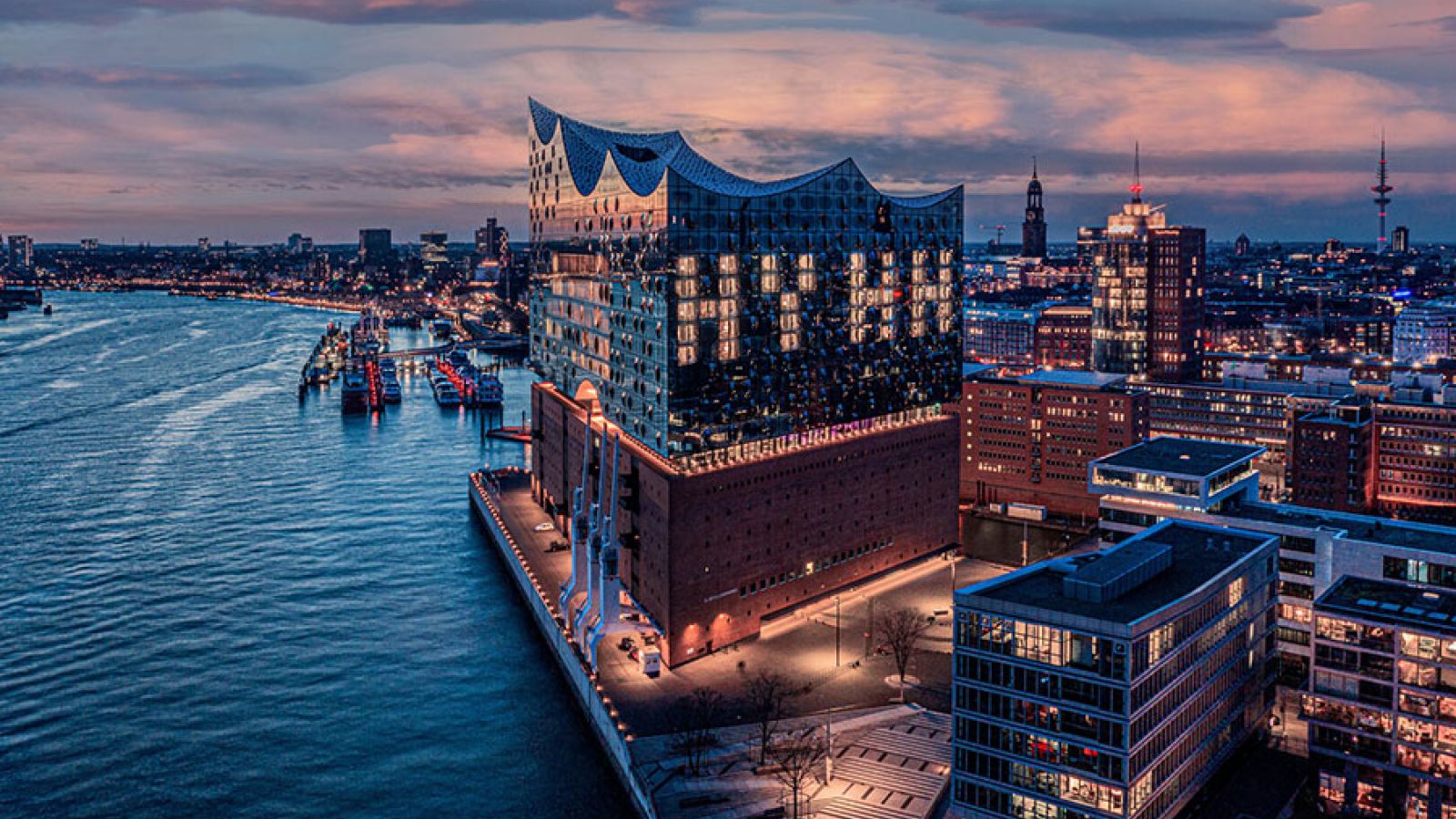
A Green Hydrogen Network of Short Distances
Green hydrogen is still in short supply. Therefore, the focus is on ramping up capacities for production and import. A key project in this context is the Hamburg Green Hydrogen Hub (HGHH). Located at the Moorburg site in the Port of Hamburg, Hamburg Energiewerke GmbH is working with Luxcara to build an electrolyser with a capacity of 100 megawatts and the potential for future expansion, scheduled to go into operation in 2026. The appropriate infrastructure will be provided by Gasnetz Hamburg GmbH which is currently planning the Hamburg Hydrogen Industrial Network (HH-WIN), a hydrogen network in the industrial port spanning about 40 kilometers. Both projects are funded by EU grants under the Important Projects of Common European Interest (IPCEI) for hydrogen. Subsidies totaling over 250 million euros are allocated for both initiatives.
Hamburg Port: Hub for Production, Import, and Infrastructure
The port is the powerhouse of Hamburg's economy - and also plays a central role when it comes to hydrogen. As one of the most high-performing ports in Europe, it not only serves as an efficient logistics hub, but is also the largest contiguous industrial area in Northern Europe. Its infrastructure provides optimal conditions for the import, storage, and distribution of hydrogen in large volumes. A high degree of digitisation ensures efficient processes. At the port, transnational waterways, roads, and railways converge within the European network, alongside high-capacity electricity grids and gas pipelines. Few other locations in Europe offer better conditions.
With the hydrogen import strategy adopted in 2022, Hamburg aims to position itself as an international hub in the European hydrogen network, covering both regional and parts of national and European hydrogen supply. This is why the Hamburg Port Authority (HPA), together with renowned partners from the energy, logistics, and industrial industries, launched the ‘Sustainable Energy Hub’ initiative in October 2023. It aims to make the Port of Hamburg a relevant gateway where other industrial and handling companies from the sustainable energy sector as well as important suppliers of plant and technical equipment can set up shop.
The land-based Brunsbüttel LNG terminal planned to be up and running by 2026 is another building block of the hydrogen strategy, as it will contribute to the establishment of an infrastructure for hydrogen and green gases in the future.
Green hydrogen is also to be increasingly used in port logistics. To this end, Hamburger Hafen und Logistik AG has initiated various projects, such as H2LOAD for the decarbonisation of heavy goods logistics.
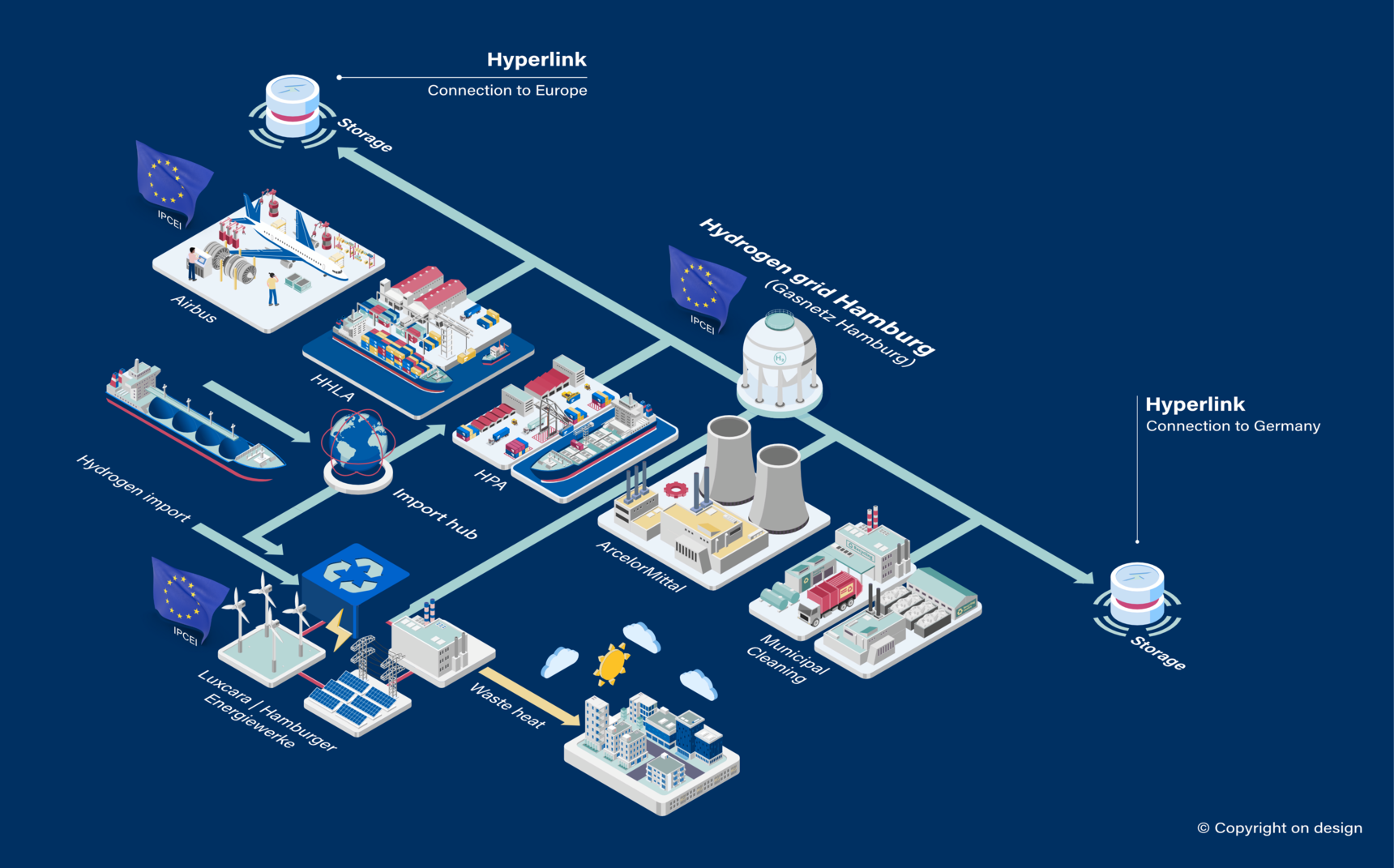
A Powerful Hydrogen Ecosystem
In addition, there are more than 60 other projects, initiatives, start-ups, and collaborations in the Hanseatic city on the subject of green hydrogen. These include, for example, the H2Global Foundation, which supports the market ramp-up for hydrogen through a subsidy model that guarantees stable prices and thus planning security for buyers.
At locations in Hamburg, Bremen, Bremerhaven, and Stade, the northern German joint project ITZ Nord is designed to provide a new type of development, research, and testing environment in the aviation and shipping sectors, especially for start-ups, founders, and SMEs. It is considered one of the key milestones in the transformation of northern Germany into a hydrogen stronghold and is funded by the federal government with around 70 million euros.
The “H2 StartUp Accelerator”, launched in 2022, is also geared towards networking and promoting start-ups. It is one of the world's first programs exclusively dedicated to hydrogen and aims to establish an international ecosystem for innovative start-ups and connect them with leading global companies.
With the Norddeutsches Reallabor (NRL), another joint project seeks to test new paths to climate neutrality. To this end, areas of manufacturing and everyday life with particularly high energy consumption, such as heat supply and mobility, will be gradually decarbonised and transitioned to renewable energy sources, both in the industry and private sectors.
Hamburg is also home to a future-oriented project in the field of aviation. With WOPLiN, Airbus wants to make a substantial contribution to achieving global climate targets, as the aviation industry accounts for around three percent of global CO2 emissions. For this reason, Airbus – one of the largest employers in the metropolitan region – has launched the ZEROe aircraft concept, which aims to significantly reduce emissions. The company relies on hydrogen as an energy source for propulsion systems and is currently developing three different prototypes for medium-haul aircraft, one of which is set to be built.
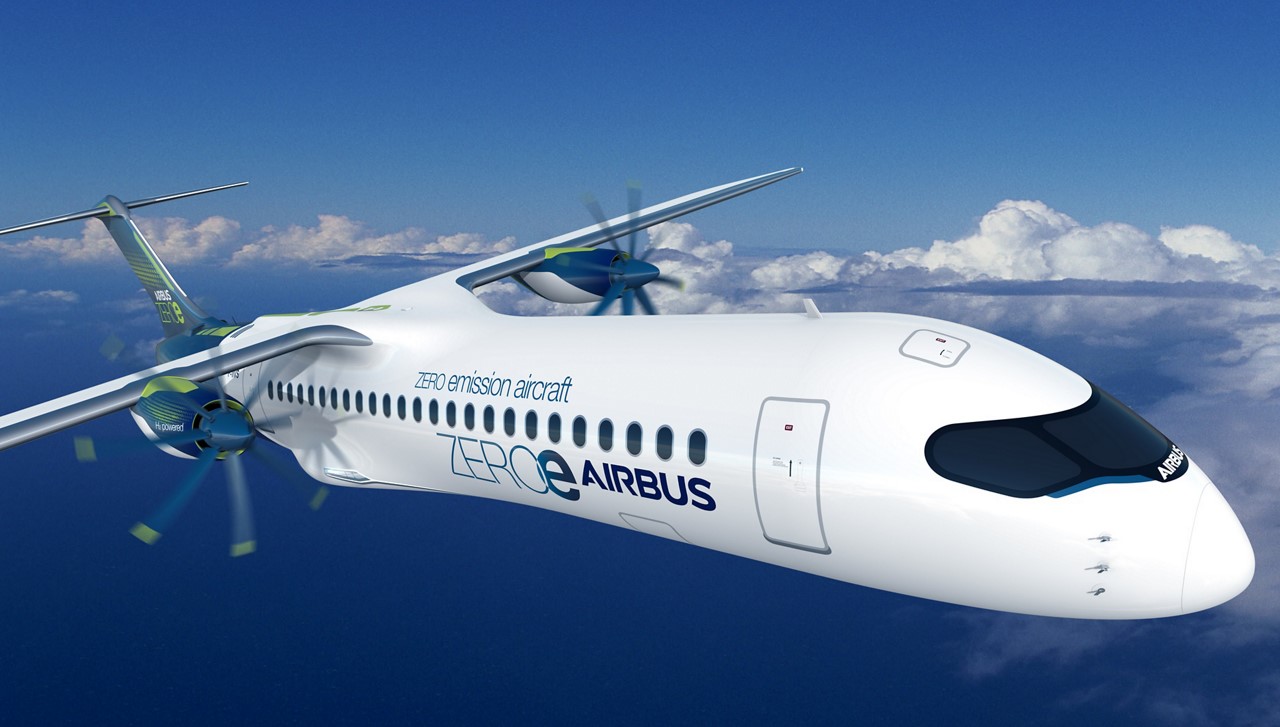
HY-5: Driving the Hydrogen Economy in Northern Germany
Even beyond the city limits, Hamburg plays an active role in promoting green hydrogen. In 2020, the five northern German states of Niedersachsen, Schleswig-Holstein, Mecklenburg-Vorpommern, Hamburg, and Bremen joined forces in the HY-5 initiative for green hydrogen. The initiative, backed by the five states’ economic development organisations, aims to establish Northern Germany as the leading future region for green hydrogen in Europe. To this end, HY-5 supports investors and companies interested in settling in the region and highlights the strengths of Northern Germany at international trade fairs and conferences.
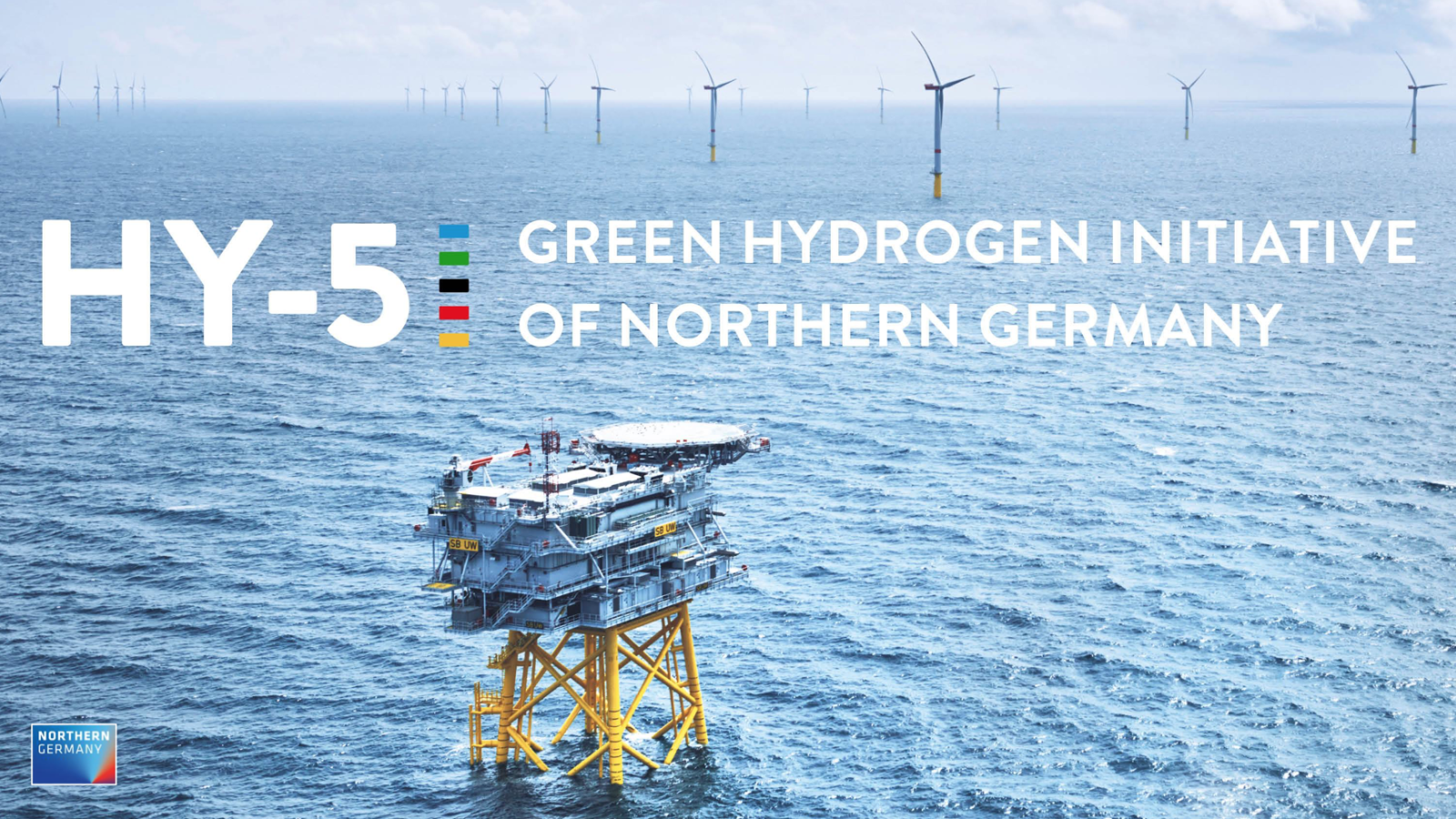
H2 Trailer Hamburg Marketing GmbH
The Hydrogen Market: A Billion-Dollar Opportunity
Hydrogen is not only an elementary component of future energy supply but also a market worth billions: By 2050, the hydrogen industry is projected to create over five million jobs and generate an annual revenue of 800 billion euros in Europe. And Northern Germany will be right at the forefront.

